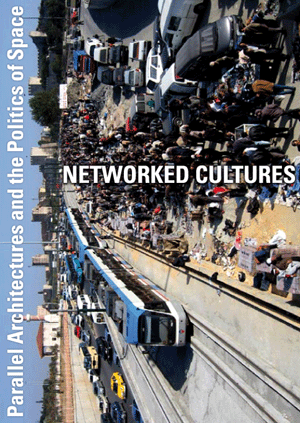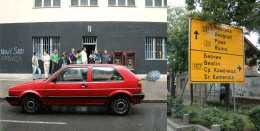_loginregistrieren_database_5 Factories - Worker Control in Venezuela Dario Azzellini & Oliver Ressler _ALMOSTREAL ECF _AnArchitektur Jesko Fezer _Arizona Road Azra Aksamija _Balkan Konsulat rotor _Bata-ville: We are not afraid of the future Nina Pope + Karen Guthrie / www.somewhere.org.uk _Black Benz Race krcf in collaboration with Felix Stalder, Arben Gecaj, Faton Topalli and Osman Osmani _Black Sea Files Ursula Biemann _Camp La Jolla Military ParkOwen Mundy _CHANGE REALITY: Renaming the Streets of Zagreb REINIGUNGSGESELLSCHAFT _Conceptual Paradise. There is a place for sophistication Stefan Roemer _de-regulation Irit Rogoff, Kutlug Ataman, Stefan Roemer_news ____________Bloomberg SPACE, London ____________Kumu Art Museum Tallinn ____________Open Space, Open Systems - Vienna ____________CAA 2011 Conference, New York ____________Forum Stadtpark, Graz ____________Symposium, Istanbul ____________lungomare, Bozen/Bolzano ____________Metropolis Biennale 2007-17, Copenhagen ____________new publication available now ____________Mestna Galerija, Ljubljana ____________Livestream of Networked Cultures documentary ____________ |
_TextsWhen the Unavoidable Knocks at the Door ...Gulsen Bal In contrast to the idea and logic that changing places leads from point A to point B, an odyssey within and/or across cultural boundaries started from Ljubljana and ended in Sarajevo with Lost Highway Expedition1 (LHE). This seems to emerge in response to problematizing issues of geopolitical fragmentation, the conflictual zones, and the normalization in its curatorial strategy in the successor states of former Yugoslavia. The pertinence of this project in the context of this argument was revealed in Marc Neelen’s question: “[where] is it then this multitude of individuals is heading?” This is conceived in a shift that has occurred with the condition that the active autonomous agent presupposes to search for “the future.”
Certain conditions of impossibility generate several essential issues initiated by looking at the location of emerging spaces on the far side of the tendency to identify politics along with the notion of Balkanization. This idea involves a vision in which a new “space of enunciation” within a networked culture is introduced beyond its metaphorical existence and rhetoric construction. In addressing these matters of concern, however, a far broader issue emerges. Key to this is the process of “existential territories.” This requires going beyond the boundaries of dichotomies. Negri and Hardt in Empire describe the “multitude” such that it “designates new spaces as its journeys establish new residencies” in different “wor(l)ds.” The maps in the hand: Passing through Ljubljana, Zagreb, Novi Sad, Belgrade, Skopje, Priština, Tirana, Podgorica and Sarajevo… It is a temporal experience of human mutability, historical in the deepest sense of the term in that it implies the necessary experience of any present as a passing experience that makes the past irrevocable and unforgettable, because it is inseparable from any present or future. --Deleuze The “nomadic voyaging” towards the Eastern axis engendered by the “flows and the spaces of encounters” through transitional interactions maintains paradoxical settings in its proliferation of the sites in which decentralization overlaps. In The Balkan’s Imaginary and the Paradox of European Borders, Dusan Bjelic acknowledges that “the experience of the Balkans bears the code of the discursive power-relations constitutive of its authenticity [within] the reciprocal component of its own self-invention and its reaction to its own image.” However, what appears in this discursive space is as Todorova argues in Imagining the Balkans: the “imputed ambiguity” marks a rupture with its “transitory character,” where the contradictory tensions are at play. This is about the interaction and reciprocal presupposition in an essential paradox of “moments of sociability” and “objects that producing sociability” traverse art and its politics on the basis of the impossibility of meaning.This is basic to cultural production and towards the complex relational powers to a degree that is beyond the understanding or scope of the “conditions of possibility” to “conditions of actuality.” Boundaries are crossed when the ability to live in different “wor(l)ds” generates a range of notions of crossings and transitions and of limits and relocation from structure. This designates the engagement in rupture and affirmation of the encounter in its proximity towards mirroring the “world we have lost” and the tracing of a world yet to come. After all, “it is not necessary to create a world, but the possibility of a world.” Consequently, the basic matrix of the LHE project brings us back to the hidden boundaries of the multitude in “immediate experience” that effectively undermines a plausible reality behind reality, which was perhaps directly posited through reflective determination. This implies a reification of “showing you the world in my eyes” which renders the multiplicity of “changing places, losing the way, and the expectations of return” insofar as therein resides the unavoidable that knocks at the door, especially when considering the current situation that is unfolding in the Middle East. Yet, what in practice transcends its own context with the politics of production still remains crucial and needs to be explored further. Previously published in ArtMargins – contemporary central and eastern european visual culture Notes 1-LHE is a project initiated by the School of Missing Studies and Centrala Foundation including: Azra Akšamija, Katherine Carl, Ana Dzokic;, Ivan Kucina, Marc Neelen, Kyong Park, Marjetica Potrc; and Srdjan Jovanovic; Weiss, together with partners in Ljubljana, Zagreb, Novi Sad, Belgrade, Skopje, Priština, Tirana, Podgorica and Sarajevo (30 July - 24 August 2006). For more info: http://www.europelostandfound.net |
_broadcasts_conversations+ Ana Dzokic and Marc Neelen+ Ayreen Anastas and Rene Gabri + atelier d'architecture autogérée (aaa) + Asya Filippova + Sophie Hope and Sarah Carrington + Branca Curcic + Christoph Schaefer + Campement Urbain + Claudia Zanfi + Despoina Sevasti and Poka-Yio + Erden Kosova + Helmut Batista _textsRadio as Spatial Practiceby: Paulo Tavares Survival Kits: Artistic Responses to Globalizationby: Marga van Mechelen What Ever Happened to Cultural Democracy?by: Sophie Hope I don't know how to explain ...by: Anca Gyemant Trading Placesby: Peter Moertenboeck & Helge Mooshammer Milosevic as Architectby: Srdjan Jovanovic Weiss When the Unavoidable Knocks at the Door ...by: Gulsen Bal Tracing Translocality: The BlackBenz Raceby: Felix Stalder travelling lexicon towards a global positioning systemby: Celine Condorelli |
 Coinciding with remaining and current political situations in different corners of the world that propagate “changing place, losing the way, and the expectations of return” into existence, this inter-disciplinary project aims towards creating a dynamic structure against and beyond representation by introducing an incomplete open system towards static structures. What is to be said is established through the “found knowledge” of a “nomadic voyaging—” the expedition with its multitude.
Coinciding with remaining and current political situations in different corners of the world that propagate “changing place, losing the way, and the expectations of return” into existence, this inter-disciplinary project aims towards creating a dynamic structure against and beyond representation by introducing an incomplete open system towards static structures. What is to be said is established through the “found knowledge” of a “nomadic voyaging—” the expedition with its multitude.